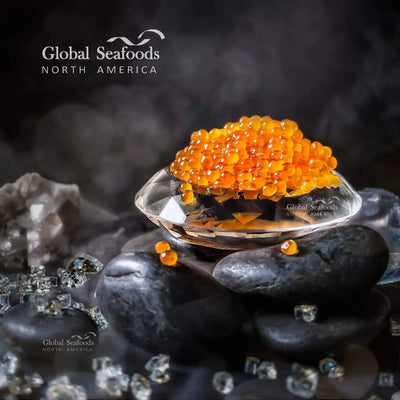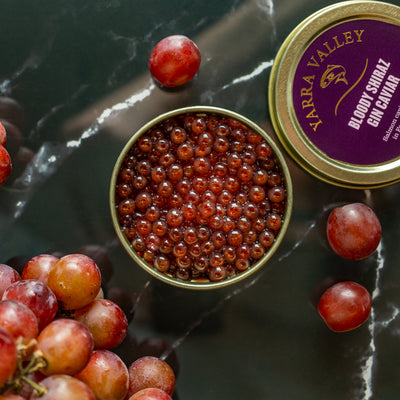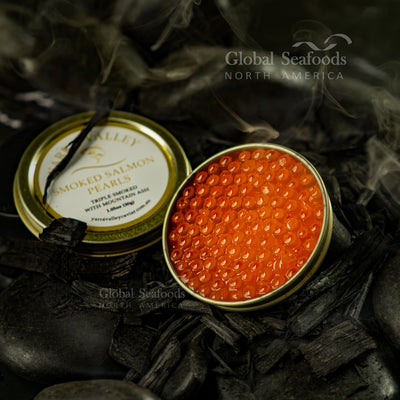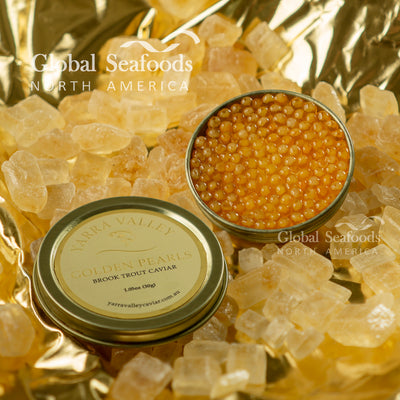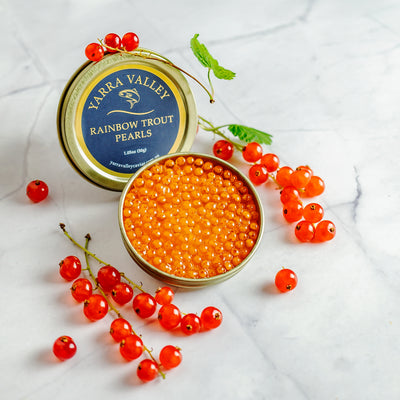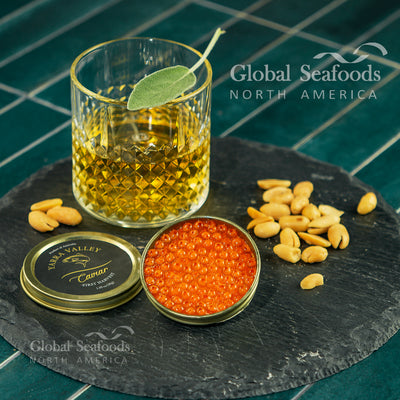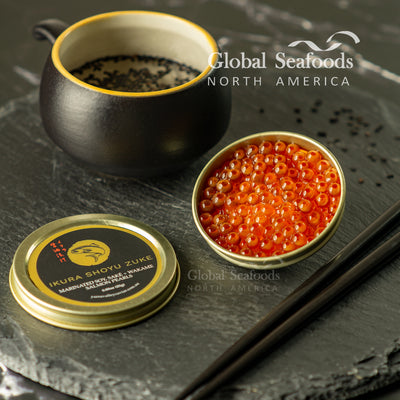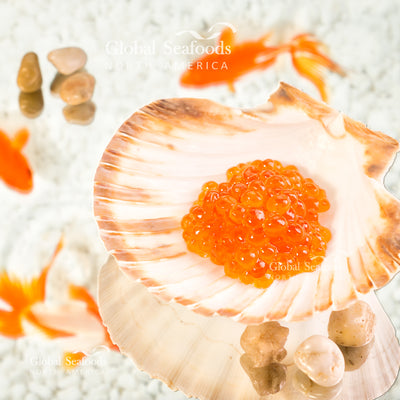+Shop Now
+Categories
- Abalone
- Ahi Tuna
- Alaskan King Crab Legs
- Alaskan Pollock
- Alaskan Sockeye Salmon
- Albacore Tuna
- Anchovy
- Anxiety Relief
- appetizer
- Atlantic Salmon
- Beluga Caviar
- Best Sushi
- black caviar
- black cod
- Blue crabs
- Bluefin Tuna
- Brain Function
- Branzino
- breakfast
- Calamari
- caviar
- Caviar Recipes
- Chef Knives
- Chilean Sea Bass
- Clams
- cocktail caviar
- Cod
- Coho Salmon Caviar
- collagen
- Cooking Methods
- crab
- Crab Balls
- Crab Cakes
- Crab claws
- crab meat
- Crab Recipes
- culinary tips
- decline-sturgeon
- Diver Scallops
- Dover Sole
- Dry Aged Fish
- Dungeness Crab
- Dungeness crab clusters
- Dungeness Crab Legs
- Exotic Shellfish Sampler
- Fish and Seafood
- fish oil
- Fish Sauce
- flat fish
- FLOUNDER FISH
- Focus
- Fresh Seafood Delivery
- Fresh Wild Alaskan Salmon
- Geoduck
- Gooseneck Barnacles
- Gourmet Seafood Platter
- haddock
- halibut
- Halibut Recipes
- hamachi
- Hamachi Recipe
- health
- healthy eating
- Ikura
- Japanese restaurants
- Jonah crab
- Jumbo Sea Scallops
- Kaluga Caviar
- kelp
- king crab
- King Crab Legs
- King Salmon
- kitchen
- Lingcod
- Live King Crab
- Live Lobsters for Sale
- Live Scallops
- Live seafood
- lobster
- Lobster Tail
- luxury food
- mahi mahi
- Marine Collagen
- Mollusk
- Monkfish
- Mussels
- New
- Nutrition
- octopus
- Opah
- Ora King Salmon
- Osetra Caviar
- Ossetra Sturgeon Caviar
- oysters
- Pacific Cod
- Pacific Hake
- Pacific Halibut
- Pacific Ocean
- Pacific Whiting
- Pacific Whiting Recipe
- Paddlefish Caviar
- Petite Oysters
- Petrale Sole
- Poke Tuna
- Pollock
- Pregnancy
- Premium Caviar Selection
- Recipe
- red caviar
- Red Crab
- rock fish
- Rockfish
- Rockfish Recipes
- sablefish
- Sablefish (Black Cod) Recipes
- salmon
- Salmon Caviar
- Salmon lox
- Salmon Poke
- Salmon Recipes
- salmon roe
- Sardines
- Sashimi
- Sashimi-Grade Tuna
- Scallop
- scallops
- Scallops Recipe
- Sea Urchi Recipe
- sea urchin
- Sea Urchin Sushi
- sea weed
- Seafood
- Seafood Dishes
- Seafood Market
- Seafood Recipe
- Seafood Restaurants
- sevruga caviar
- shellfish
- Shrimps & Prawns
- Silver Salmon
- Smoked
- Smoked Salmon
- Smoked Tuna
- Snail Caviar
- Snapper Recipe
- snow crab
- Sole & Flounder Recipes
- Squid
- Steelhead
- Sturgeon Caviar
- Sustainable Seafood Choices
- Swordfish
- Tilapia
- Tilapia Fish
- Tobiko
- Trout
- tuna
- Tuna Recipe
- weathervane scallops
- white fish
- White Sturgeon
- White Sturgeon Caviar
- Whiting Fish
- Wild Caught Shrimp
- Yellowfin Tuna
- Yellowtail snapper
🔴 Red Caviar Price – How Much Does It Cost & Where to Buy the Best?
February 08, 2025

🔴 Red Caviar Price – How Much Does It Cost & Where to Buy the Best?
Red Caviar Price – Everything You Need to Know Before Buying
Red caviar, also known as salmon roe, is a popular and affordable alternative to traditional sturgeon caviar. It’s widely enjoyed in Japanese, Russian, and European cuisines, offering a burst of flavor, rich color, and a more accessible price point.
In this guide, we’ll break down the key elements that affect red caviar price, what to look for when purchasing, and how to get the best quality for your budget.
Factors That Affect Red Caviar Price
1. Type of Red Caviar – The Most Important Factor
Not all red caviar is the same! Different fish produce roe with unique flavors, sizes, and prices.
- Chum Salmon Caviar – Large, vibrant orange eggs with a mild, slightly salty taste. Priced at $175.00 for 2.2 lbs (1 kg).
- Coho Salmon Caviar – Smaller, firmer eggs with a rich, briny flavor. Available at $155.00 for 2 x 1.1 lbs trays.
- Trout Caviar – Buttery and mild, perfect for gourmet dishes. Offered at $85.00 for 1.1 lbs.
- Pink Salmon Caviar – More affordable, with a delicate, fresh flavor. Currently sold out; previously listed at $160.00.
2. Origin – Where the Caviar Comes From
The country of origin plays a significant role in red caviar pricing.
- Alaskan Salmon Roe – Considered the best quality, often priced at a premium due to sustainable harvesting.
- Russian & Japanese Ikura – Known for high-quality eggs, with a rich, briny flavor.
- European & American Trout Caviar – More affordable alternatives, often farm-raised & sustainably sourced.
3. Processing & Salt Content
- Lightly salted red caviar (Malossol) is more expensive but preferred for its delicate flavor.
- Pasteurized red caviar lasts longer but may have a slightly firmer texture.
- Heavily salted red caviar is cheaper but has a stronger, saltier taste.
How Much Should You Pay for Red Caviar?
The cost of red caviar varies, but here’s a general pricing guide:
| Type of Red Caviar | Price Per Pound |
|---|---|
| Chum Salmon Caviar | $79.55 per pound |
| Coho Salmon Caviar | $70.45 per pound |
| Trout Caviar | $77.27 per pound |
| Pink Salmon Caviar | $72.73 per pound |
Prices are approximate and based on available data from Global Seafoods.
How to Serve & Enjoy Red Caviar Like a Pro
- Serve on blinis, toast points, or sushi rolls.
- Pair with sour cream, crème fraîche, or fresh dill.
- Use a non-metal spoon (to preserve the delicate taste).
- Enjoy with chilled vodka or sparkling wine for a luxurious experience.
FAQs – Everything You Need to Know About Red Caviar
Q1: Is red caviar healthy? Yes! Red caviar is rich in omega-3s, protein, and essential vitamins. However, it contains high sodium, so enjoy in moderation.
Q2: How should I store red caviar? Keep it refrigerated at 28-32°F. Once opened, consume within 3-5 days.
Q3: Can I freeze red caviar? Yes, but freezing may slightly alter the texture. Best enjoyed fresh!
Q4: Where can I buy high-quality red caviar? Global Seafoods offers premium red caviar selections at competitive prices.
Buy Premium Red Caviar & Enjoy Luxury at Home!
Whether you're looking for affordable salmon roe or top-tier Alaskan Ikura, knowing what affects red caviar prices helps you make an informed purchase.
Shop premium red caviar here:
- Red Caviar Collection
- Salmon Caviar Collection
- Chum Salmon Caviar
- Coho Salmon Caviar
- Trout Red Caviar
- Pink Salmon Caviar
Want expert seafood tips? Subscribe to the Global Seafoods YouTube Channel!
Upgrade your dining experience with the finest red caviar today!
Related Products
Share:
Also in News

How to Make Sea Bream Sushi With Dry-Aged Tuna & Crab Roll — Step-by-Step With Chef Joshua
December 07, 2025
A complete guide to making Sea Bream sushi at home, including filleting, curing, slicing, and building a Dry-Aged Tuna & Crab sushi roll. Chef Joshua shares professional tips for restaurant-quality results.

Cooked Crab for Game Night: Everything You Need for a Perfect Seafood Party
June 27, 2025
Take your game night to the next level with a Cooked crab party. Learn the best recipes, cooking tips, and hosting hacks for a memorable seafood feast.

Steam Crab for Date Night: A Romantic Guide to the Perfect Seafood Feast
June 27, 2025
Make your next date night unforgettable with a romantic Steam crab experience. This guide covers everything you need to know, from ambiance to the best crab varieties.
+Shop Now
+Categories
- Abalone
- Ahi Tuna
- Alaskan King Crab Legs
- Alaskan Pollock
- Alaskan Sockeye Salmon
- Albacore Tuna
- Anchovy
- Anxiety Relief
- appetizer
- Atlantic Salmon
- Beluga Caviar
- Best Sushi
- black caviar
- black cod
- Blue crabs
- Bluefin Tuna
- Brain Function
- Branzino
- breakfast
- Calamari
- caviar
- Caviar Recipes
- Chef Knives
- Chilean Sea Bass
- Clams
- cocktail caviar
- Cod
- Coho Salmon Caviar
- collagen
- Cooking Methods
- crab
- Crab Balls
- Crab Cakes
- Crab claws
- crab meat
- Crab Recipes
- culinary tips
- decline-sturgeon
- Diver Scallops
- Dover Sole
- Dry Aged Fish
- Dungeness Crab
- Dungeness crab clusters
- Dungeness Crab Legs
- Exotic Shellfish Sampler
- Fish and Seafood
- fish oil
- Fish Sauce
- flat fish
- FLOUNDER FISH
- Focus
- Fresh Seafood Delivery
- Fresh Wild Alaskan Salmon
- Geoduck
- Gooseneck Barnacles
- Gourmet Seafood Platter
- haddock
- halibut
- Halibut Recipes
- hamachi
- Hamachi Recipe
- health
- healthy eating
- Ikura
- Japanese restaurants
- Jonah crab
- Jumbo Sea Scallops
- Kaluga Caviar
- kelp
- king crab
- King Crab Legs
- King Salmon
- kitchen
- Lingcod
- Live King Crab
- Live Lobsters for Sale
- Live Scallops
- Live seafood
- lobster
- Lobster Tail
- luxury food
- mahi mahi
- Marine Collagen
- Mollusk
- Monkfish
- Mussels
- New
- Nutrition
- octopus
- Opah
- Ora King Salmon
- Osetra Caviar
- Ossetra Sturgeon Caviar
- oysters
- Pacific Cod
- Pacific Hake
- Pacific Halibut
- Pacific Ocean
- Pacific Whiting
- Pacific Whiting Recipe
- Paddlefish Caviar
- Petite Oysters
- Petrale Sole
- Poke Tuna
- Pollock
- Pregnancy
- Premium Caviar Selection
- Recipe
- red caviar
- Red Crab
- rock fish
- Rockfish
- Rockfish Recipes
- sablefish
- Sablefish (Black Cod) Recipes
- salmon
- Salmon Caviar
- Salmon lox
- Salmon Poke
- Salmon Recipes
- salmon roe
- Sardines
- Sashimi
- Sashimi-Grade Tuna
- Scallop
- scallops
- Scallops Recipe
- Sea Urchi Recipe
- sea urchin
- Sea Urchin Sushi
- sea weed
- Seafood
- Seafood Dishes
- Seafood Market
- Seafood Recipe
- Seafood Restaurants
- sevruga caviar
- shellfish
- Shrimps & Prawns
- Silver Salmon
- Smoked
- Smoked Salmon
- Smoked Tuna
- Snail Caviar
- Snapper Recipe
- snow crab
- Sole & Flounder Recipes
- Squid
- Steelhead
- Sturgeon Caviar
- Sustainable Seafood Choices
- Swordfish
- Tilapia
- Tilapia Fish
- Tobiko
- Trout
- tuna
- Tuna Recipe
- weathervane scallops
- white fish
- White Sturgeon
- White Sturgeon Caviar
- Whiting Fish
- Wild Caught Shrimp
- Yellowfin Tuna
- Yellowtail snapper
Shop Now
Main
News & Updates
Sign up to get the latest on sales, new releases and more…
© 2026 Global Seafoods North America.

